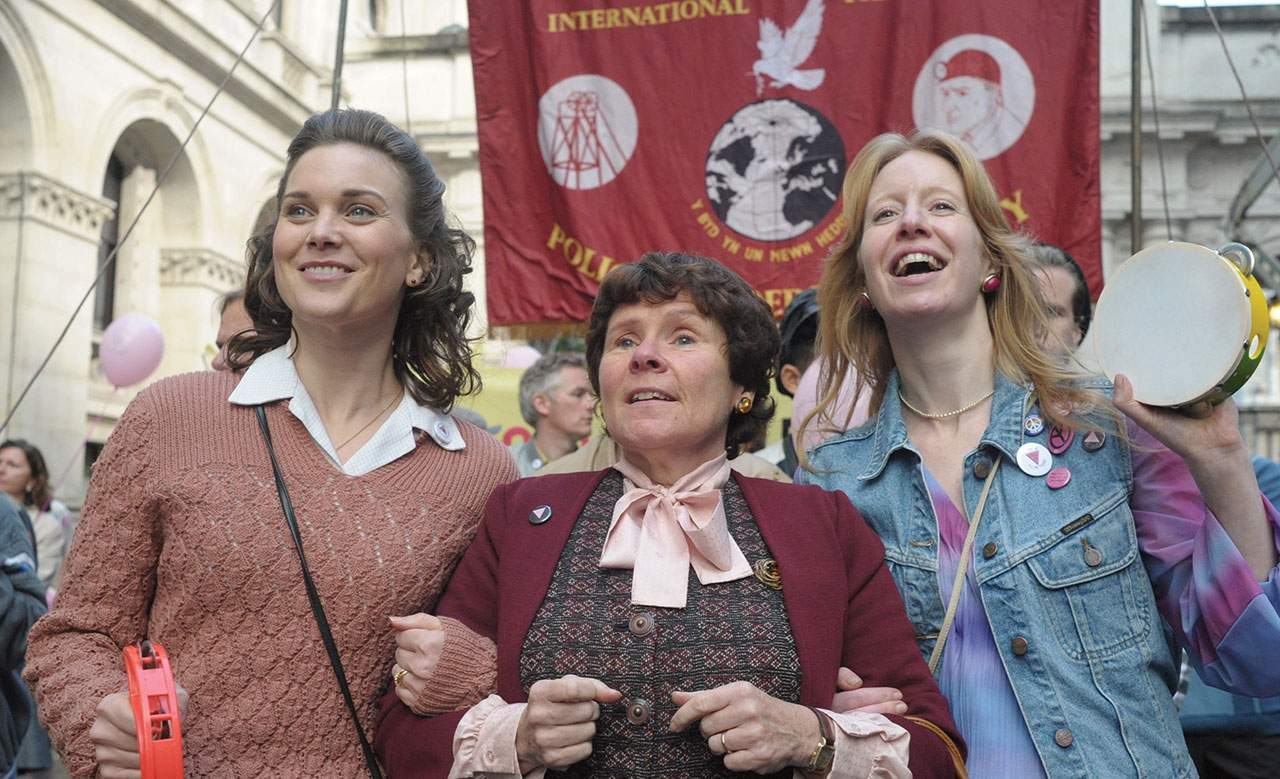Pride
Who knew an account of the 1980s UK miners' strike could be so entertaining and affecting?
Overview
The miners' strike remains one of the most infamous aspects of Margaret Thatcher's British leadership, and one frequently committed to film. Billy Elliott showed the immediate consequences for families, as well as its influence over ideals of masculinity. Brassed Off charted the lingering aftermath as pits closed again a decade later. Now Pride offers a glimpse at unlikely efforts to support those affected by the industrial action.
At the 1984 gay pride march in London, Mark Ashton (Ben Schnetzer) is swept up in the spirit of mobilisation, pledging to assist the miners' cause as well. His rationale, of aiding others marginalised, is simple. The apprehension of some of his friends, uncertain about helping a cohort not known for their tolerance, is understandable. With bookstore owner Gethin (Andrew Scott), actor Jonathan (Dominic West), naive college kid Joe (George MacKay), and the world-weary Steph (Faye Marsay), Lesbians and Gays Support the Miners (LGSM) is born.
Good intentions can only get them so far, with the group's calls met with rejection and silence. Only the Welsh village of Onllwyn accepts their offer via its union rep, Dai (Paddy Considine); shy secretary, Cliff (Bill Nighy); and women's auxiliary leader, Hefina (Imelda Staunton). But much of the rest of the townsfolk need convincing of the merits of their alliance.
In chronicling LGSM's quest, Pride is the kind of heartwarming underdog tale that rouses crowds, as retellings of powerful true stories often do. There's no escaping the schmaltz designed to elicit such a reaction, nor the swelling score or checklist of expected characters; however, the feature's unbridled enthusiasm for its circumstances and cause is similarly, joyously unavoidable.
For a film broad in scope and blunt in approach, nothing ever feels cursory, whether touching upon the AIDS epidemic, homophobic attacks, culture clashes, issues of coming out at different life stages, subplots involving female empowerment and small-town discrimination, political paradigms or the overall narrative of acceptance. Director Matthew Warchus and writer Stephen Beresford's earnestness is as authentic as their aim in offering a well-rounded account, fictionalised but devoid of judgment and brimming with understanding.
Compiling an excellent cast, each turning in considered and classy performances, further ensures warmth and wit shines through. Schnetzer's go-getting is infectiously charismatic; West is a delight gifted a stellar dance scene; and Nighy, Considine and Staunton radiate compassion, their endeavours combining in an effort as upbeat as it is empathetic.
Indeed, even if history tells otherwise, things are always looking up in Pride, thematically in a story steeped in solidarity, and visually in bright, energetic camerawork that peers appreciatively at its many protagonists. With heart and hope, the film becomes a feel-good triumph of statement and sentiment, equally entertaining, affecting and important.





